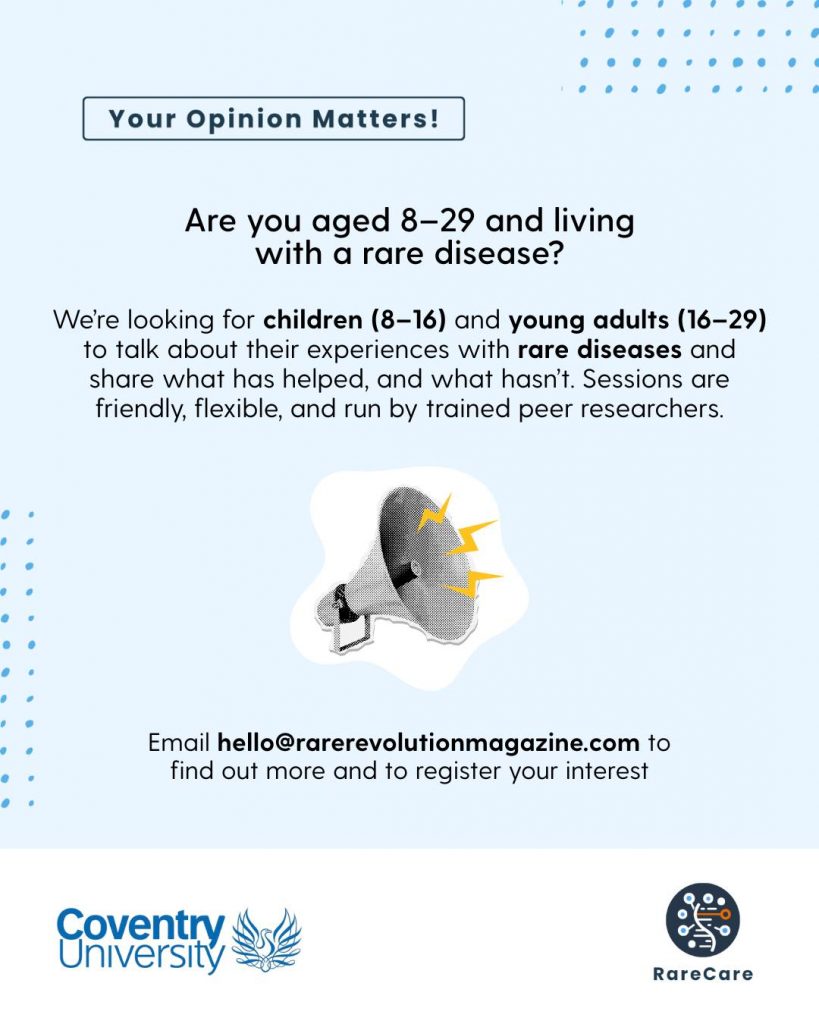EXISTING MEMBER LOGIN
Forgot password? Please contact us membership@rarechromo.org
Registered member but first time log in? Just go to the Unique Members Area Registration Form
Not yet a registered member? Just go to the Become A Member page
If you’re looking to get involved in research, there are often many projects and studies taking place. Take a look at the current opportunities that we have come across.
Join the MRC CoRE in Therapeutic Genomics Parent and Family Group
Anyone with, or has a family member with, a genetic or rare genetic condition
Learn more and get involved by contacting carol.porteous@paediatrics.ox.ac.uk
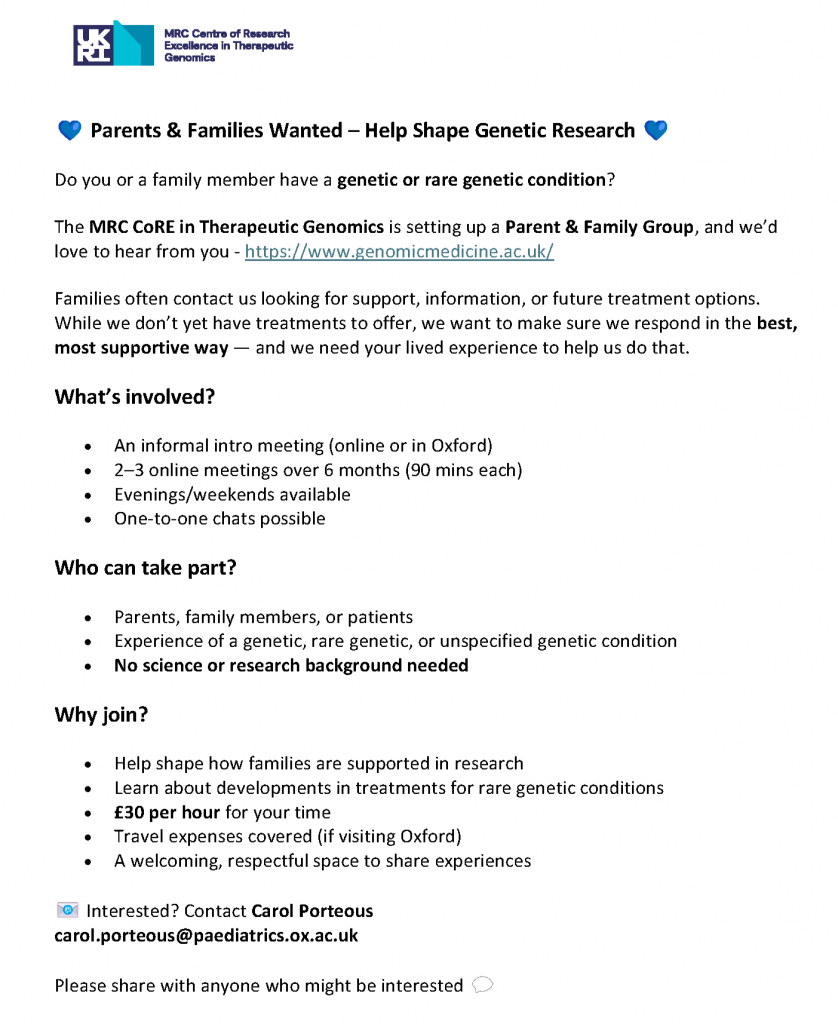
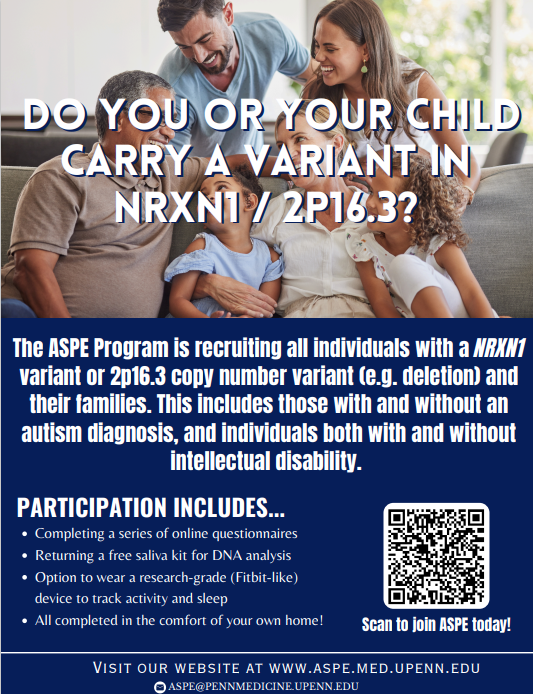
People with, or who have children with, a variant in NRXN1 / 2P16.3 gene
Families with infants aged 6-12 months with rare genetic syndromes.
For the in-person assessment, you must be local to the Birmingham area
Learn more and get involved by contacting Rachel Martlew at rxm731@bham.ac.uk
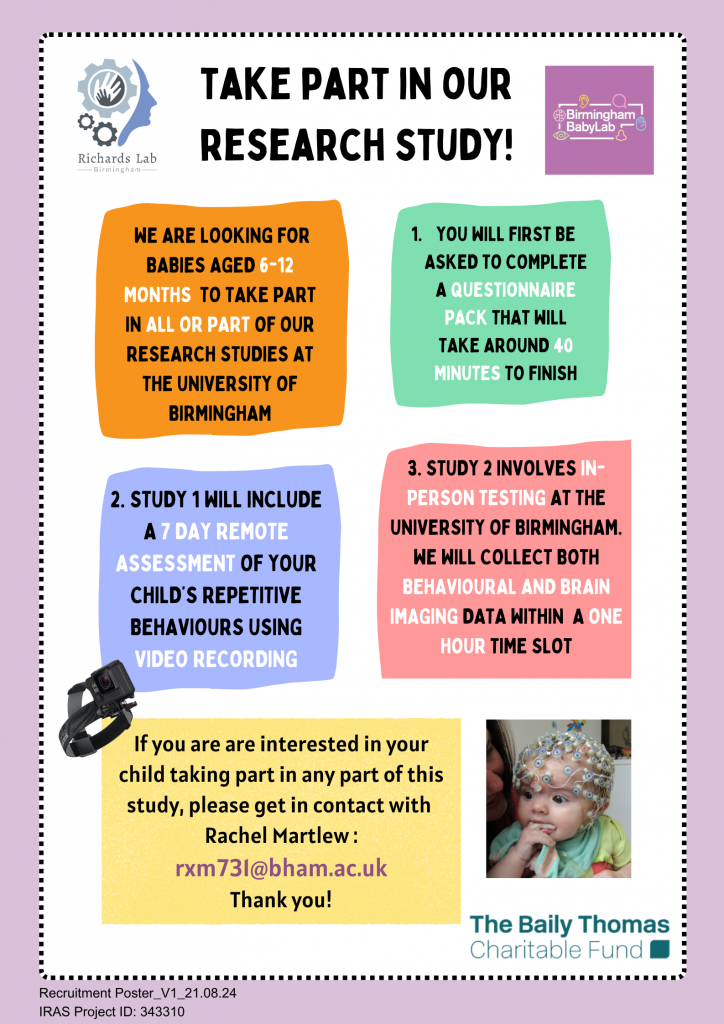
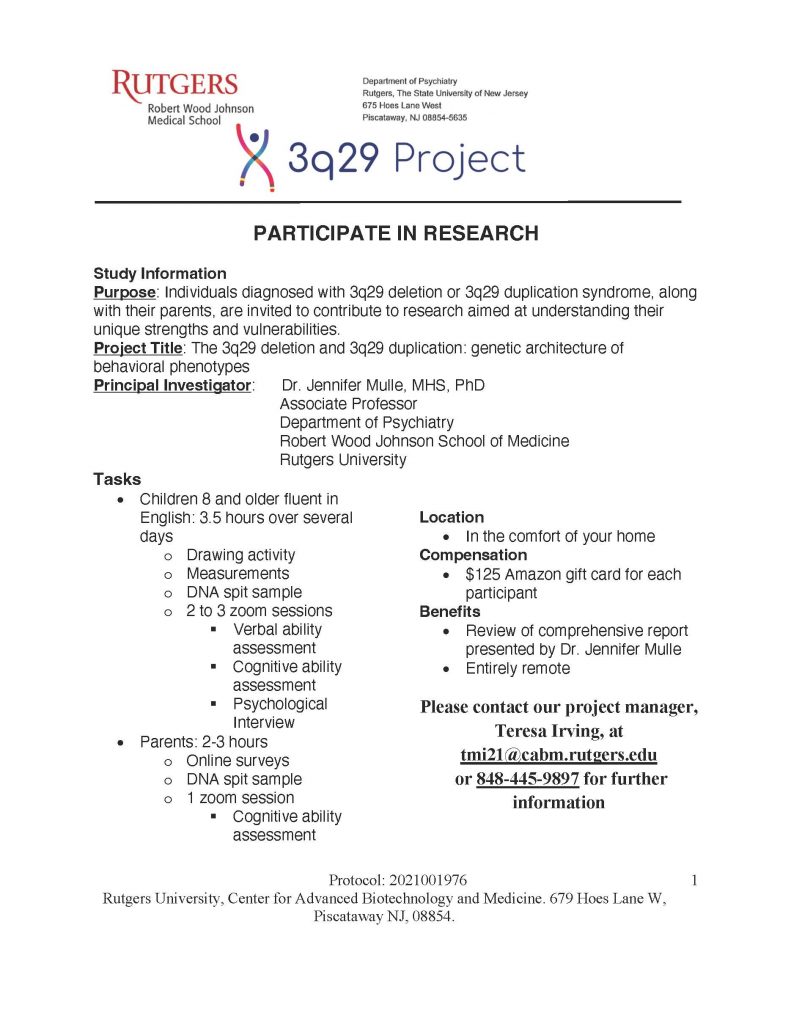
individuals diagnosed with 3q29 duplication or 3q29 deletion syndrome
Learn more by contacting 3q29@cabm.rutgers.edu or the Project Manager, Terry Irving, directly at tmi21@cabm.rutgers.ed
enrolling children and adults aged 6 months to 90 years who have had diagnostic genetic testing that showed a deletion or a duplication in chromosome 17q12.
To participate, contact Dr. Daniel Moreno
De Luca or the PRISMA research staff at
+1 780 492 4467 or prisma@ualberta.ca
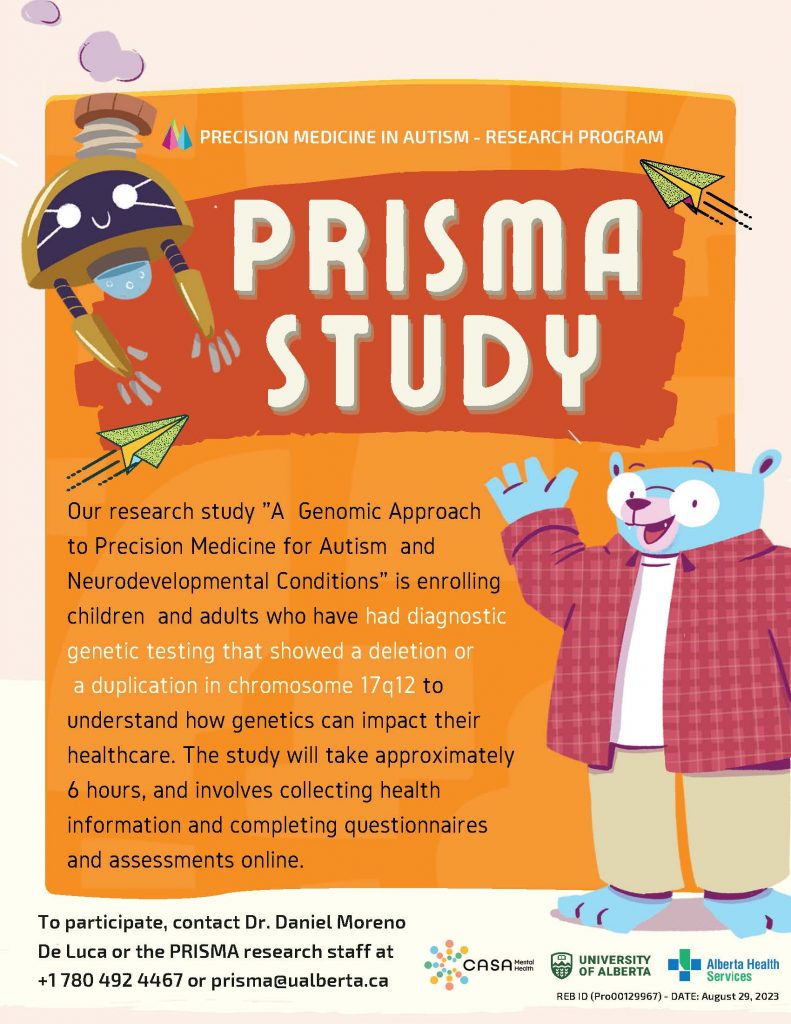

Siblings (aged 11-15 years old) and/or their parents.
Contact Zoe Starkie at z.starkie@uea.ac.uk for further information on taking part in a one hour interview.
Understand the perspectives of caregivers who use enclosed beds
Who can get involved?
Caregivers of people with intellectual disability


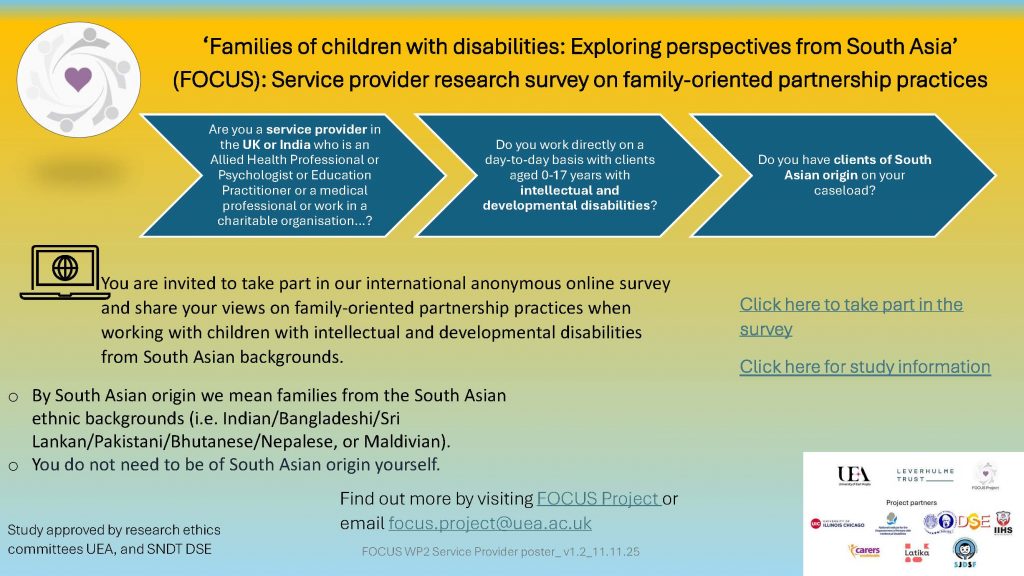
South Asian families in India, and the UK who have a loved one with an intellectual and developmental disability.
People affected by RARB-related disorder (also known as MCOPS12)
Email researcher for more info
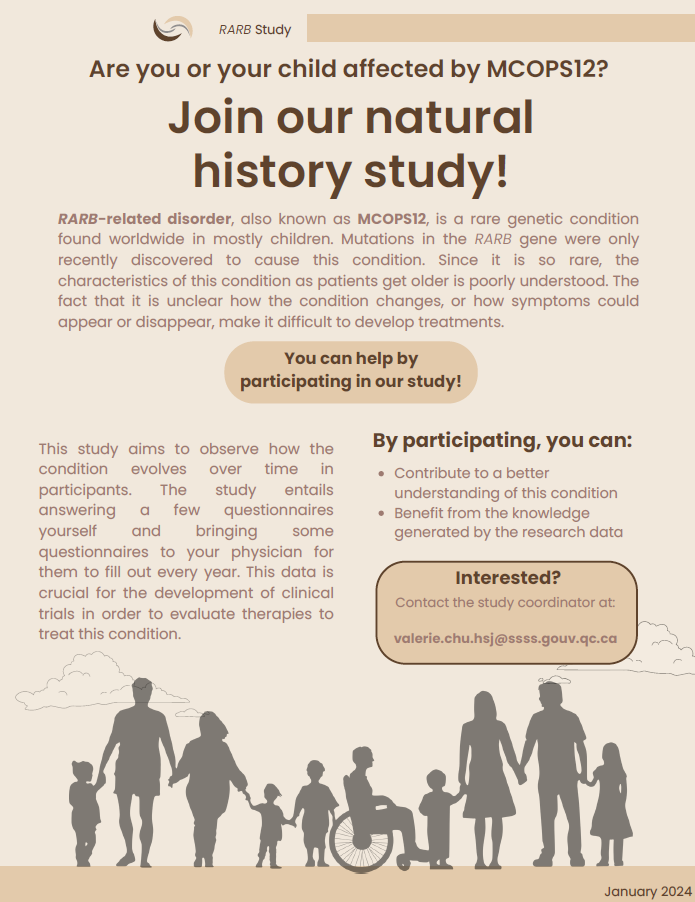
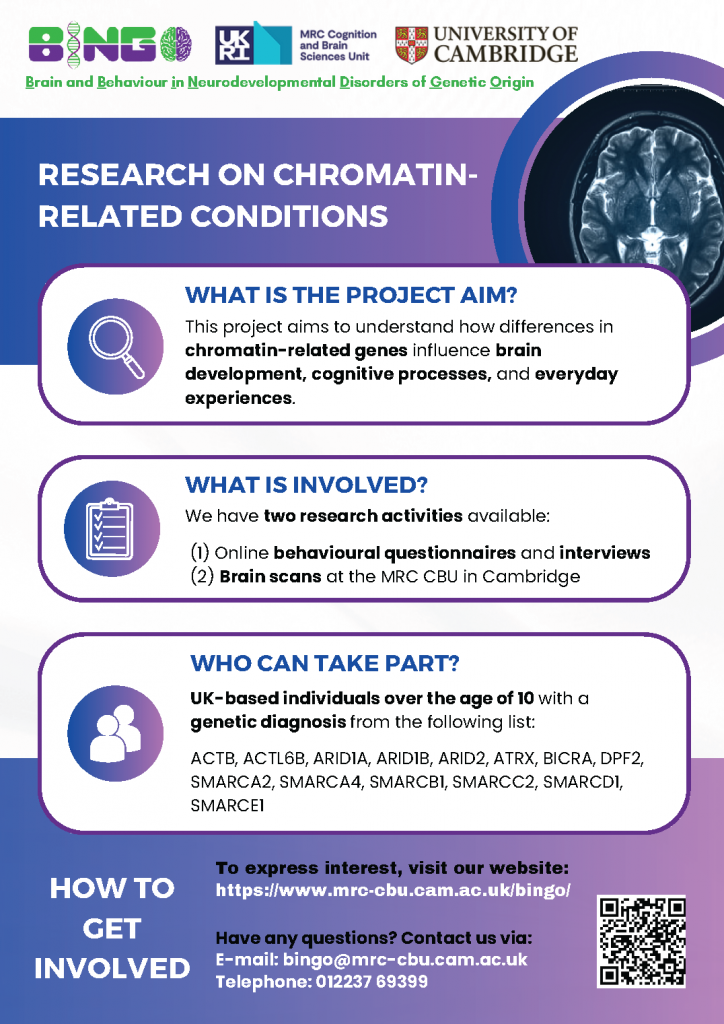
UK-based individuals over the age of 10 with a genetic diagnosis from the following list:
ACTB, ACTL6B, ARID1A, ARID1B, ARID2, ATRX, BICRA, DPF2, SMARCA2, SMARCA4, SMARCB1, SMARCC2, SMARCD1, SMARCE1
If you or someone you know may be interested in helping with this research, either by writing to NRXN1@mcri.edu.au or fill in the survey
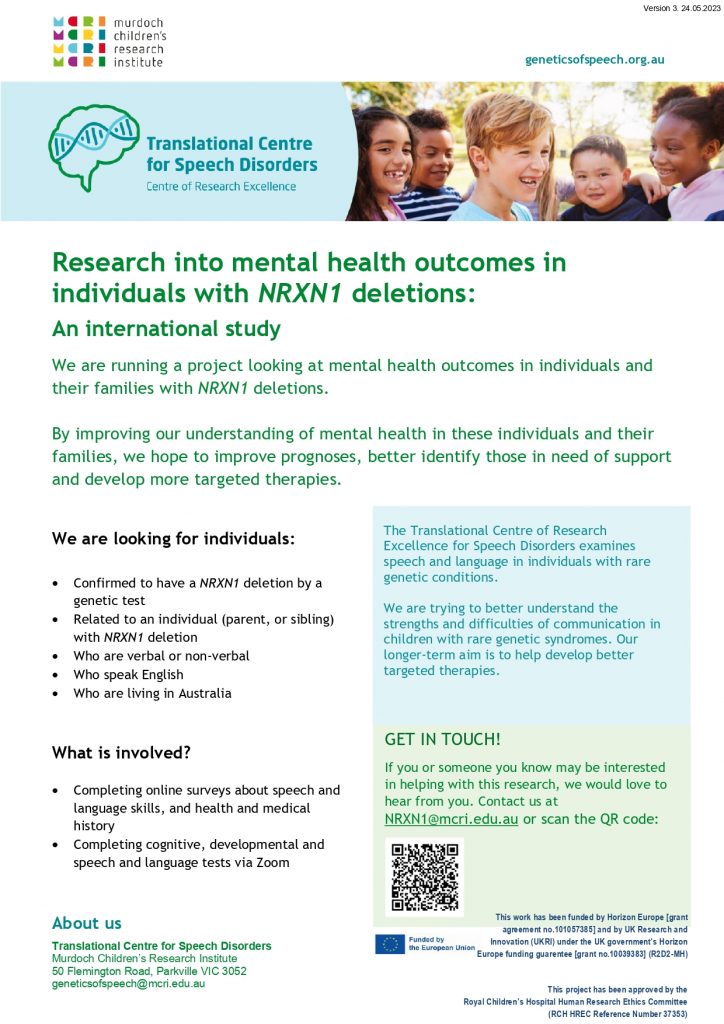
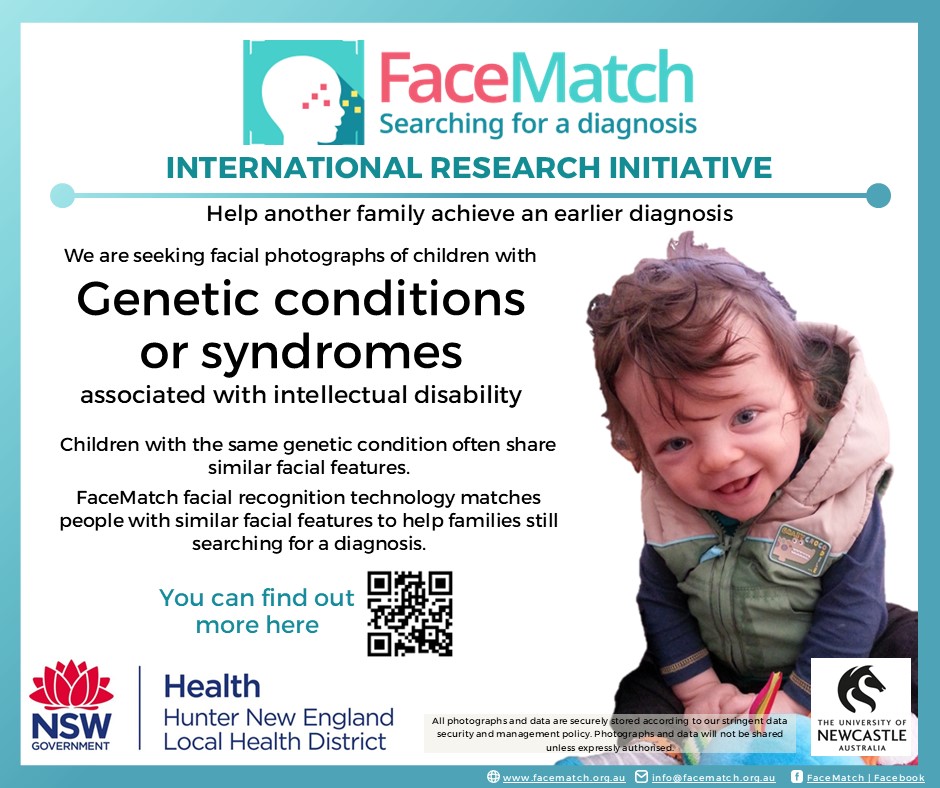
Families of children with a diagnosed intellectual
condition or syndrome
Children (8–16) and young adults (16–29) in England living with a rare condition and their carers.
Email hello@rarerevolutionmagazine.com for more information.
